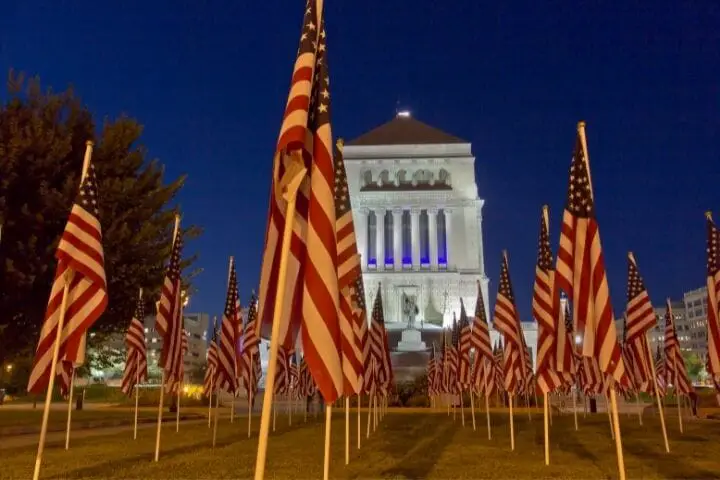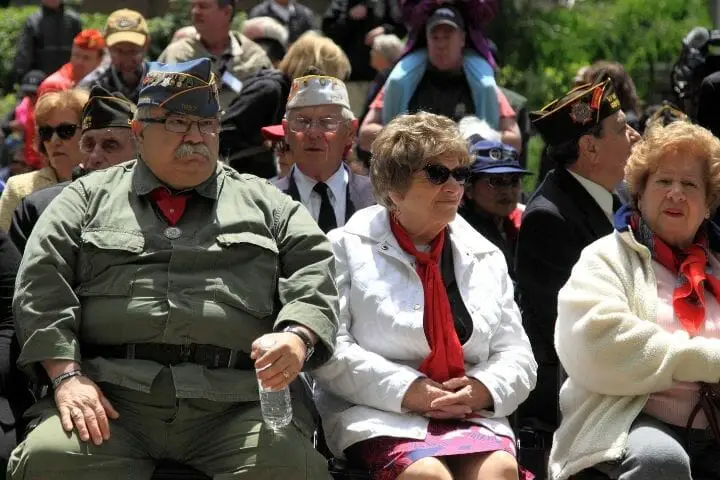Are you a veteran caregiver and unsatisfied with the monthly benefits for your caregiving? This article will guide you about the Board of Veterans Appeal, which will help get compensation for your efforts.
Contents
Many former service members are disabled or wounded, and they need someone to take care of their health. They may even need assistance in daily activities like bathing, brushing, feeding, or moving in and out of their bed.
In most circumstances, spouses or family members provide the necessary care to veterans to have homely comforts and be surrounded by their loved ones.

But caregivers have to sacrifice a lot in lieu of this care. Some may have to leave their full-time job and put aside all the things that make them happy to focus on their health.
Read about our article on the CHAMPVA guide for caregivers.
So, caregiving is a full-time job, and if your spouse or any of your family members is taking care of your health for almost 24 hours, it is very stressful.
Fortunately, the Department of Veteran Affairs provides some support to the primary caregivers by establishing various programs which provide compensation and some monthly benefits to the caregiver of eligible veterans.
Sometimes you are denied the benefits or don’t get a stipend from the Department of Veterans affairs even after caring for the Veterans health 24 x 7. If you disagree with the decision of VA dated on or after 19th February 2019, you can now apply to the Board Of Veterans Appeal (Board).
This article focuses on how caregivers can approach the Board of Veterans appeal.
You might like to read: Veterans Caregivers? Your Guide To Strategic Analytics For Improvement And Learning
What Is the Appeal Modernization Act?
In February 2019, the VA officially implemented the Appeals Modernization Act(AMA). It is a new appeal system, and you have choices of three lanes for appealing a decision made by the VA. I am describing the three lanes below.
#1. Supplemental Claim Lane
In the Supplemental claim lane, the VA considers new and relevant evidence that was not there on record at the time of the decision.
#2. Higher Level Review
In the Higher-level Review Lane, an officer from the Caregiver Support program who was not involved during the initial decision will review your application. Here, you cannot provide any new pieces of evidence.

#3. Notice Of Disagreement lane
This law allows you to directly apply to a Veteran law judge to review the original decision made by VA. There are three dockets in the Notice of disagreement lane. You have to choose one docket among them.
The dockets are discussed below.
- Direct Docket: You can choose this docket if you neither want to submit additional evidence nor a hearing from the Veteran law judge.
- Evidence Docket: If you don’t want a hearing from the Veterans law judge immediately, you can choose this docket but submit new evidence within 90 days.
- Hearing Docket: You can choose the hearing docket if you want to have either a teleconference hearing or a person hearing from the Veterans law judge. You can submit new and relevant evidence at the time of the hearing or 90 days after the hearing.
What is the Board Of Veterans Appeal(BVA)?
Sometimes you disagree with the VA’s decision regarding benefits and compensation for working as a caregiver. You have three review options to continue the case. One such option is an appeal which is sent to BVA.
The Board Of Veterans Appeal is the part of the Department of Veteran Affairs located in Washington. This board has the power to overrule a decision made by the Department of Veteran Affairs.
You have the choice to request a hearing with a veteran judge at the Board. The judge asks several questions to the Veteran to understand the appeal better. The judge reviews the appeal after the hearing and gives a final decision. It takes 90 days or more for the whole process to occur.
Requesting a hearing will take a long time for the Board to issue a decision. Many veterans ask for an in-person hearing, which may take even more than 365 days, So choosing a virtual hearing is wise. You have to fill VA form 10182 to start the process.

Who Makes Up The Board Of Veterans Appeal?
The Board of Veterans consists of a chairman, a vice-chairman and a group of judges. The Board does not have a specific number of judges. The number of judges can vary depending upon the volume of appeals at a time.
The board judges have various support staff who help them with paperwork and reviewing claims. The chairman of the Board presents a report at the end of the year that summarises the Board’s activity, appeal volume, and the need for any support staff for the upcoming year.
You might like to read: How to Apply for VA Health Care?
Who Makes The Decision On the Board Of Veterans Appeal?
The Veteran law judges have the only authority to decide on behalf of the Board of Veterans Appeal. They issue the final decision about your appeal.
Can I Appeal The Decision Of Board Of Veterans Appeal?
Yes, you can appeal the decision made by BVA by either going to the Court of Appeals For Veteran Claims(CAVC) or by filing a supplemental claim with new evidence.
There are other options to appeal against the decision as well. They are as follows.
- You can appeal directly to the Board to reconsider the decision made by Veteran Law judges.
- You can appeal to the Board to vacate the decision and start the process new.
- You can appeal to the Board to revise the decision based on unmistakable error.

What Is Virtual VA Hearing?
The Board of Veterans Appeals has launched a virtual teleconference hearing option which provides the convenience of attending board hearings with Veteran law judges and other representatives with the help of mobile or computer.
The former president of the United States, Donald Trump, signed a Tele hearing modernization act on 10th April 2020. The act allows you to participate in virtual hearing anywhere you like. But your location should offer reliable wifi and a quiet environment to participate.
The virtual hearings are similar to video hearings, and you, the Veteran, and other family members can attend the hearing. You can access the BVA hearing through your personal computer, laptop, smartphone or tablet. Google chrome is the recommended browser to be used during the virtual hearing.
Remember selecting a virtual option will not move your case to the top of the appeal schedule. The Veteran Board Of Appeal will hear all cases in the order they are received. But virtual hearing may allow you to move the case quickly.
How Can a Veteran Request A Board For Virtual Hearing?
While completing the form 10182/Notice of disagreement, you need to select 11C in the Hearing With Veterans law Judge form. Once you choose this option, it will alert the VA that you want your hearing to be virtual.

What Happens In Virtual VA Hearing?
In a virtual hearing, you first take the oath that whatever you say should be valid throughout the Board hearing. After the oath, you have to deliver the prepared testimony and answer the questions asked by the judge. If you are working with an attorney or VSO, they will also assist in the Board hearing.
You and the judge will have an informal conversation regarding the case, and you can provide any new evidence or information at that time. You need to share everything possible to strengthen the case.
Most of the virtual hearing usually gets completed within 30 minutes. But sometimes, the meetings may go longer if there are more new documents.
You should practice with the device so that you will be comfortable during the Board meeting. For instance, you should not focus on a computer screen but the webcam while speaking during the meeting. Again make sure that the microphone setting is high enough to hear the discussion properly.
What Happens After Virtual Hearing?
You need to remember that virtual hearings are not recorded. So you should request a transcript copy after the virtual hearing.
A copy of the transcript will be added to the claim of the Veteran’s file so that the judge can look at it before taking the final decision. The judge may grant your claim or deny the appeal or send the appeal back to the VA office for correcting the errors.

Can I Reschedule My Virtual Hearing?
If you want to reschedule the date of the hearing, then you need to send a written notice to the VA board two weeks before the scheduled date.
In the written Notice, you should write your name, VA file number, and the reason for rescheduling. Remember, the reason should be logical. After receiving the request, the judge will determine whether the reason is logical or not and then give the decision.
Wrap Up
The caregivers who are denied the application of PCAFC can now appeal to the Board of Veterans Appeal. The Veteran law judges will review your appeal and make a decision. But if you are not satisfied with the decision, you can further file an appeal to the Court Of Appeals For Veteran Claim(CAVC).
I hope the information provided in this article is valuable, and please don’t forget to share this article with someone searching for this particular information.
You can ask us any queries related to the Board of Veterans Appeal in the comments section, and we will be happy to get back to you soon. Please do share this article on your social media handles and in your groups, and help us to spread this information to all caregivers of veterans across America.
